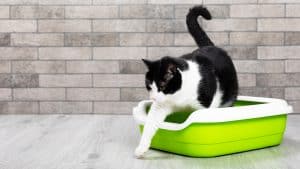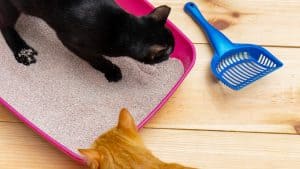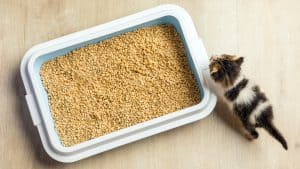Having a cat at home means you need to tackle the question of how to clean the litter scoop. This seemingly mundane task is a vital component of maintaining a hygienic environment for both you and your furry companion.
So, how do you ensure the litter scoop stays sanitary between uses? How can you make this tedious task less of a hassle? And what are the secrets to keeping your home free from litter-box odors?
In this article, we'll explore several methods to keep your litter scoop in pristine condition. Thus, ensuring a cleaner and healthier living space for you and your pet.
You'll learn practical tips and tricks, along with useful product recommendations to simplify your cleaning routine. So, let's roll up our sleeves and get down to the nitty gritty with litter scoop hygiene!
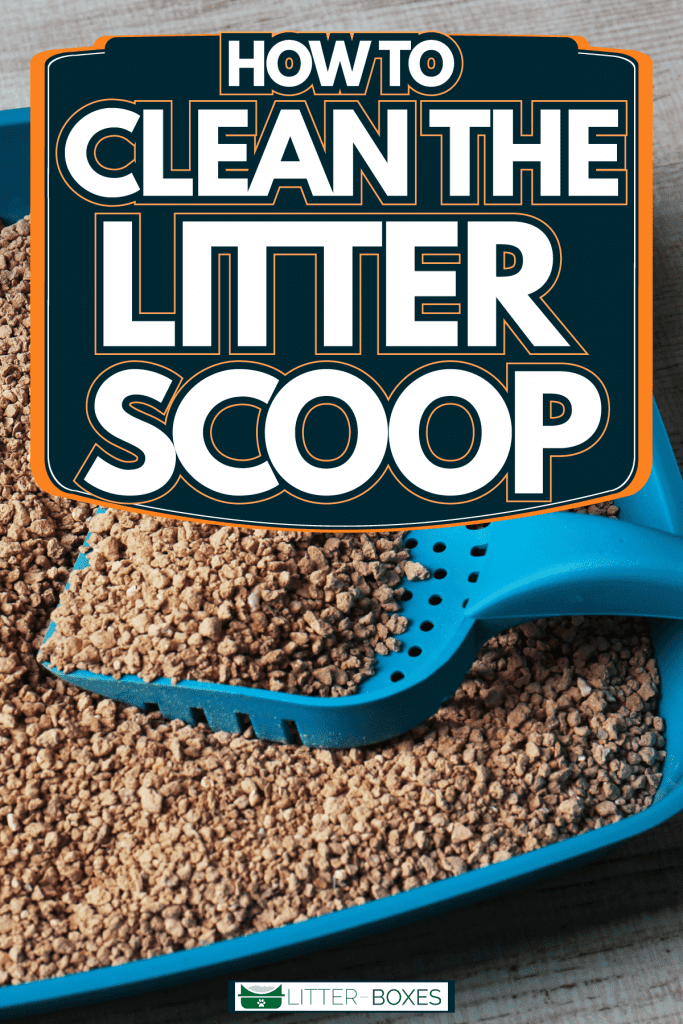
Tips for a Clean Litter Scoop
Having cats in your home requires a designated litter area for them to take care of their natural needs.
The challenge that often arises is keeping the litter scoop clean and hygienic, particularly between each use.
We've explored various methods to keep both your litter scoop and box in top shape.
Here are a few easy-to-follow suggestions to ensure a clean litter scoop:
- Rinse the scoop thoroughly with hot water, then pat it dry using a paper towel
- Consider spraying the scoop with a pet-safe, non-toxic cleaner. An alternative would be a properly diluted bleach solution. This will ensure a thorough and sanitary clean
- Prior to returning it to a nearby container, give the scoop another wipe down with a cleaning wipe
Cats are not only delightful and playful companions, but they also appreciate a clean litter box to take care of their business.
Continue reading to learn more about how you can easily maintain this standard of cleanliness in your home!
How To Clean The Litter Scoop
There is more than one way to safely clean a litter scoop! Your scoop might have dust from cat litter, stuck clumps, or traces of feces and urine.
It is a good practice to scoop out the litter box every other day if you have one cat. If you have two or more cats, you'll want to do this more frequently.
Cats want to use a clean litter box that won't leave them with litter or fecal matter on their paws.
If a cat is scratching outside of the litter box or using the litter box less frequently, check the cleanliness of the litter.
Use the following suggestions to keep a litter scoop clean, whether plastic or metal.
Keep in mind metal scoops are easier to keep sanitary, not porous, and last longer than plastic scoops.
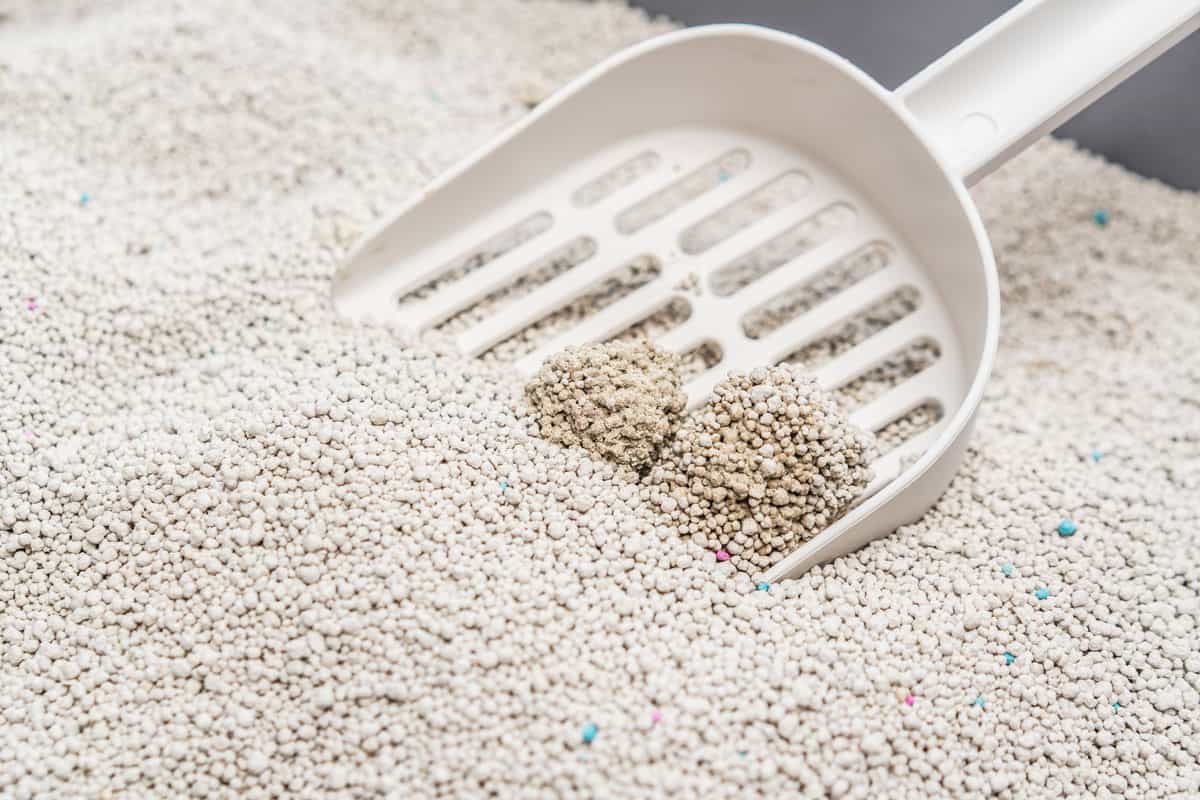
1. Hot Water Treatment
Economical choice:
Run warm or hot water over a scoop for a few minutes.
Running hot water can help loosen any stuck debris on a scoop. If needed, use mild soap on the scoop and rinse it clean before putting it back in storage.
You may want to wear gloves to clean the scoop in greater detail.
Additionally, you can soak the scoop in hot water for 20-30 minutes to loosen anything stuck on it. Be careful using hot water on plastic scoops, or in combination with harsh, toxic cleaners.
2. Spray A Cleaning Solution
You can make a homemade cleaning solution to spray on the litter scoop. Alternatively, you can apply a natural cleaner that won't leave behind residue or harm pets or humans.
You can also use a small amount of litter box cleaner on your scoop. Or diluted bleach, white vinegar, or a little bit of dish detergent also work well.
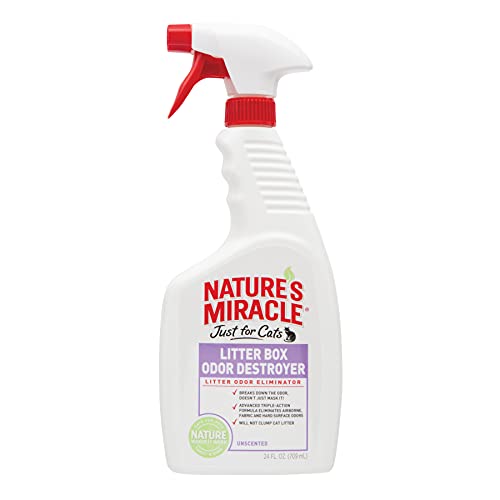
Check out this cleaner for the litter box on Amazon.
3. Use Commercial Cleaning Wipes
A cleaning wipe can clean a scoop that isn't terribly dirty. These are also useful for quick cleaning.
To use these, first, give the scoop a pre-rinse with warm or hot water. Next, wipe the scoop with a cleaning wipe before returning it to storage.

Check out these natural cleaning wipes on Amazon.
Helpful Cleaning Tips
Keeping the litter scoop clean helps keep the litter box clean.
A dirty scoop is likely to reintroduce clumps of wet litter soiled with urine or feces back into the litter box.
Also, dust and particles of fecal matter may get released into the air when using a dirty scoop.
If you use a harsh cleaner like bleach, make sure to dilute it and wipe down any residue left on the scoop.
You want to be careful about leaving behind residue from cleaners in the litter, cat box, and scoop.
Don't forget to rinse a scoop clean with water and let it air dry after using a chemical cleaner.
In addition to often cleaning the scoop, it is helpful to keep the scoop in a separate container outside the litter box.
Resist the urge to be lazy and leave a litter scoop inside a mound of litter. (Even if the cat box is large.)
If there is any fecal matter or wet litter stuck to the scoop, wear disposable gloves to remove it manually before returning it to its place.
How Do I Keep My Cats' Litter From Sticking To The Scoop?
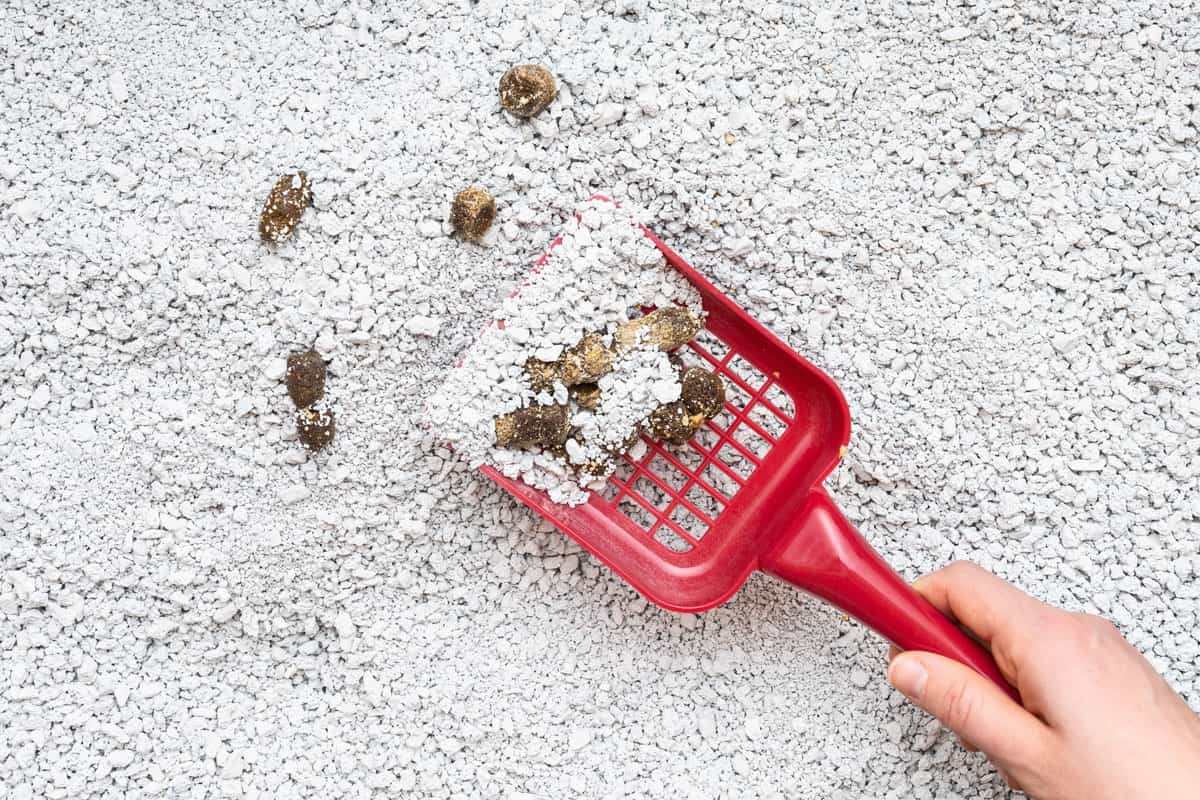
If cat litter keeps sticking to the scoop, try using the following method:
Apply a thin coat of non-stick spray on the scoop and dust it with a bit of baking soda.
Another idea is to use a metal scoop instead of a plastic scoop.
Plastic is likely to develop dings and dents where bits of litter and fecal matter can get trapped.
A smooth, metal scoop has a surface that is less likely to allow debris to stick.

Check out this metal litter scoop and caddy on Amazon.
Should I Clean My Litter Scoop?
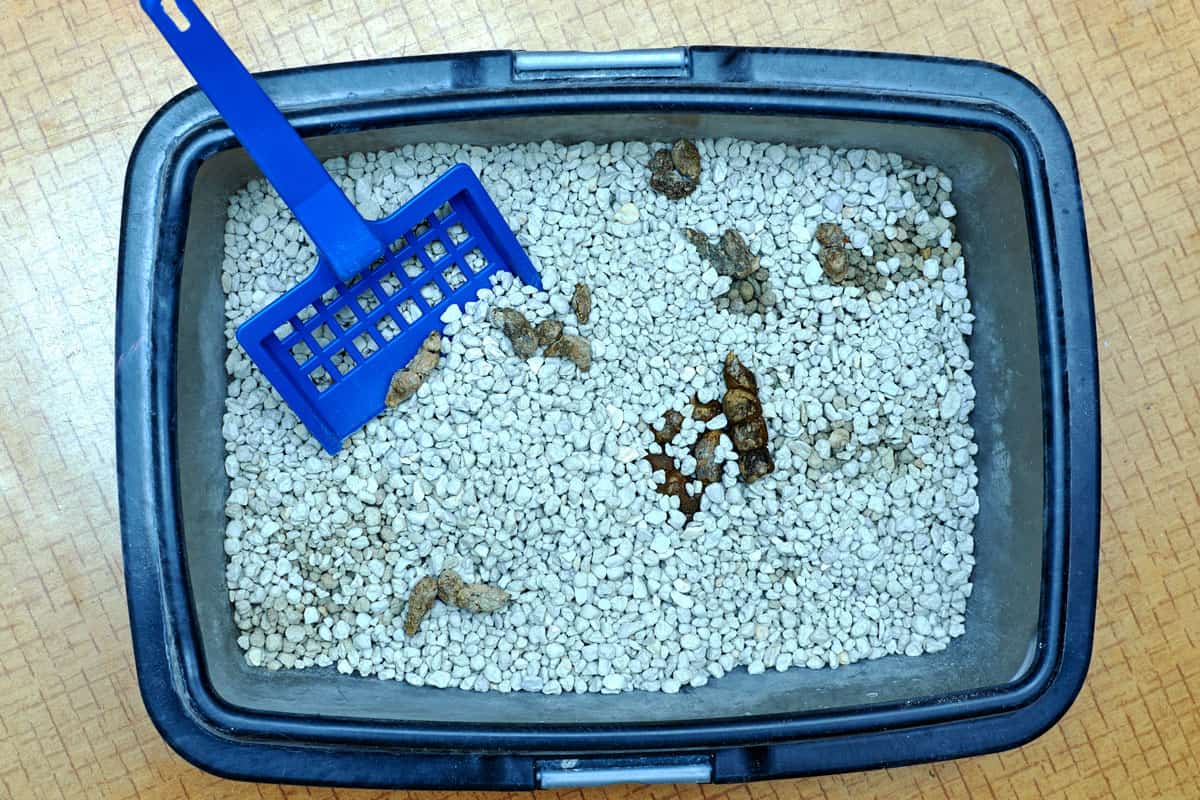
The scoop should not be neglected and left to accumulate dust from litter and stuck bits of fecal matter.
The litter scoop should be cleaned often. (Even if it is as simple as rinsing it clean with water or wiping it with a cleaning cloth.)
A dirty scoop risks transferring bacteria back into the litter box, holding onto odors, and spreading pathogens around the home.
If a scoop is kept in a container, the container should be cleaned out regularly as well.
How Often Should You Change Out All The Kitty Litter?
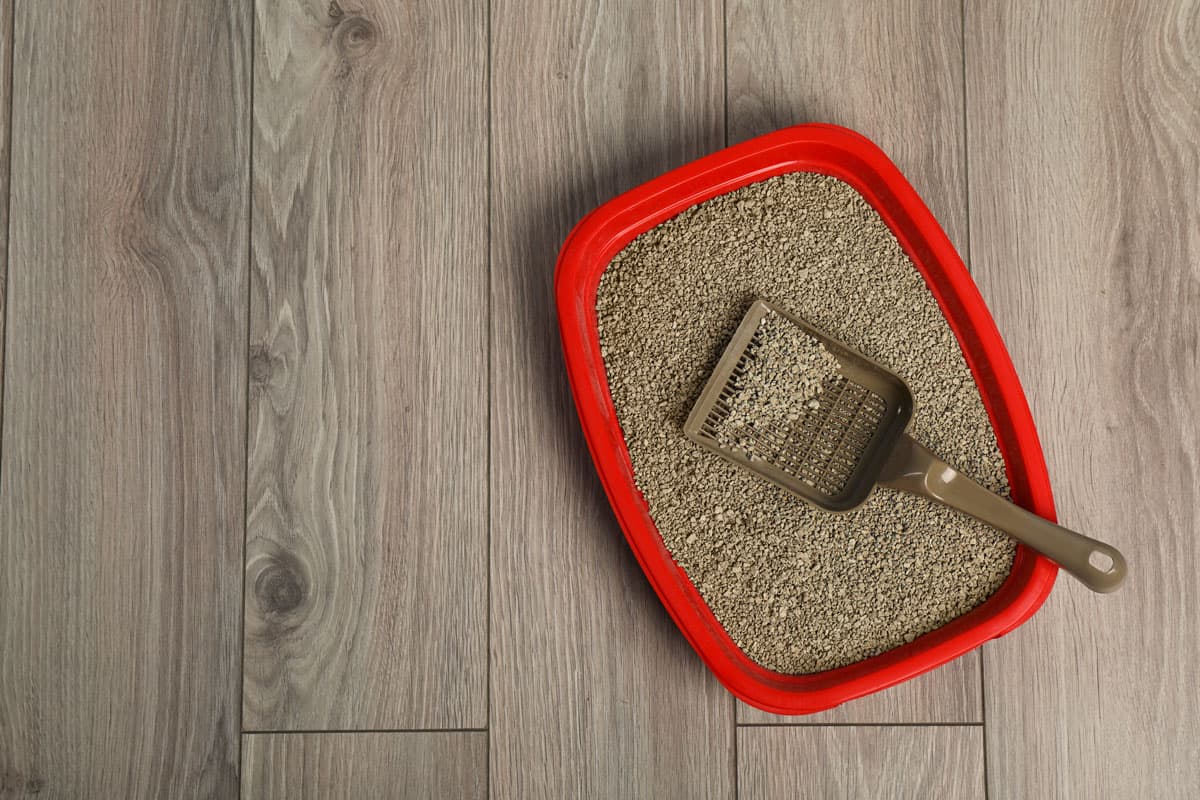
If a home only has one or two cats, you can change out the kitty litter once a month.
Litter boxes that get moderate use may need changing every two to three weeks if the litter is scooped daily.
Clay litter may need to get changed after one to two weeks.
One way to reduce the need to change out the kitty litter is to increase the frequency of scooping and change the type of litter.
Find a litter that makes clean-up less stressful and is well-liked by your cats.
Litter boxes that get cleaned regularly typically have reduced odors. They are also more pleasant to use for cats and their humans.
Homes with more than a few cats and heavily soiled litter boxes may need changing every week.
Don't forget to thoroughly clean the litter box each time you change the kitty litter to reduce ammonia, pathogens, and residue.

Check out this unscented cat litter on Amazon.
How Many Times A Day Should You Scoop Cat Litter?
Some cat owners hold themselves to a high standard. They feel that the litter box should be scooped out every day.
However, it may not always be possible to clean the litter box every day to this degree.
If a home has more than one cat, the litter box should get scooped daily to reduce odors, bacteria, and clumps.
If a litter box isn't used often and doesn't need to be changed, you can safely scoop the litter box every other day.
Keep in mind the type of litter you use for the litter box and how you clean your box between litter changes.
Try using clumping litter to help reduce odors and remove more waste.
Coat the inside of a litter box with a bit of non-stick spray and add baking soda before filling the box with litter.
Doing this may help reduce litter from sticking.
Wrapping Up: Now You Have "The Scoop"
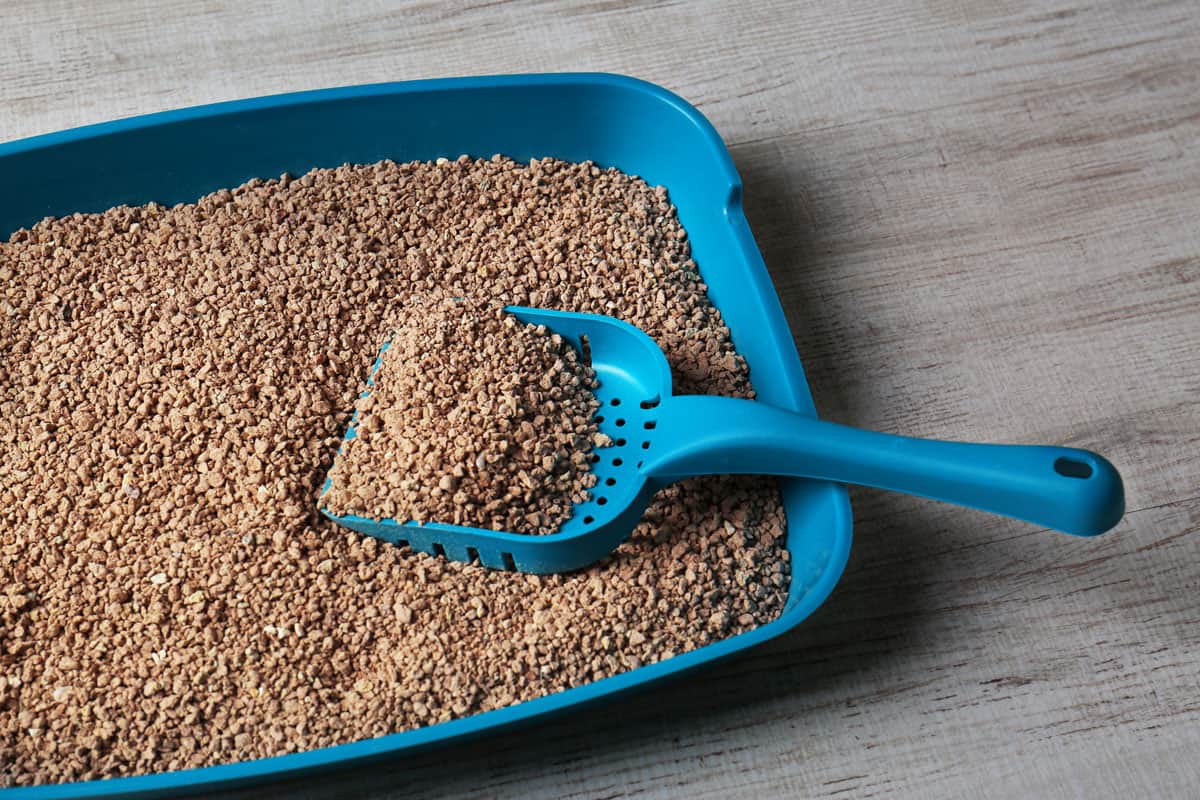
Implementing a simple and effective strategy is the best way to keep a litter scoop clean.
Ideally, it is better to use a metal scoop over a plastic scoop because a metal scoop isn't porous and doesn't easily get clumps of litter or gunk stuck on it.
Plastic scoops may also have spaces where litter and debris may accumulate more often than a metal scoop.
After each use, use a pet-safe cleaner on a scoop to reduce the transfer and build-up of bacteria from cat urine and feces in the litter.
Store the scoop in a separate container or holder near the litter box, but not directly inside the litter box.
If you have more than one cat, you may need to clean your scoop and litter box more often.
Before you go, do make time to read the following helpful articles.

